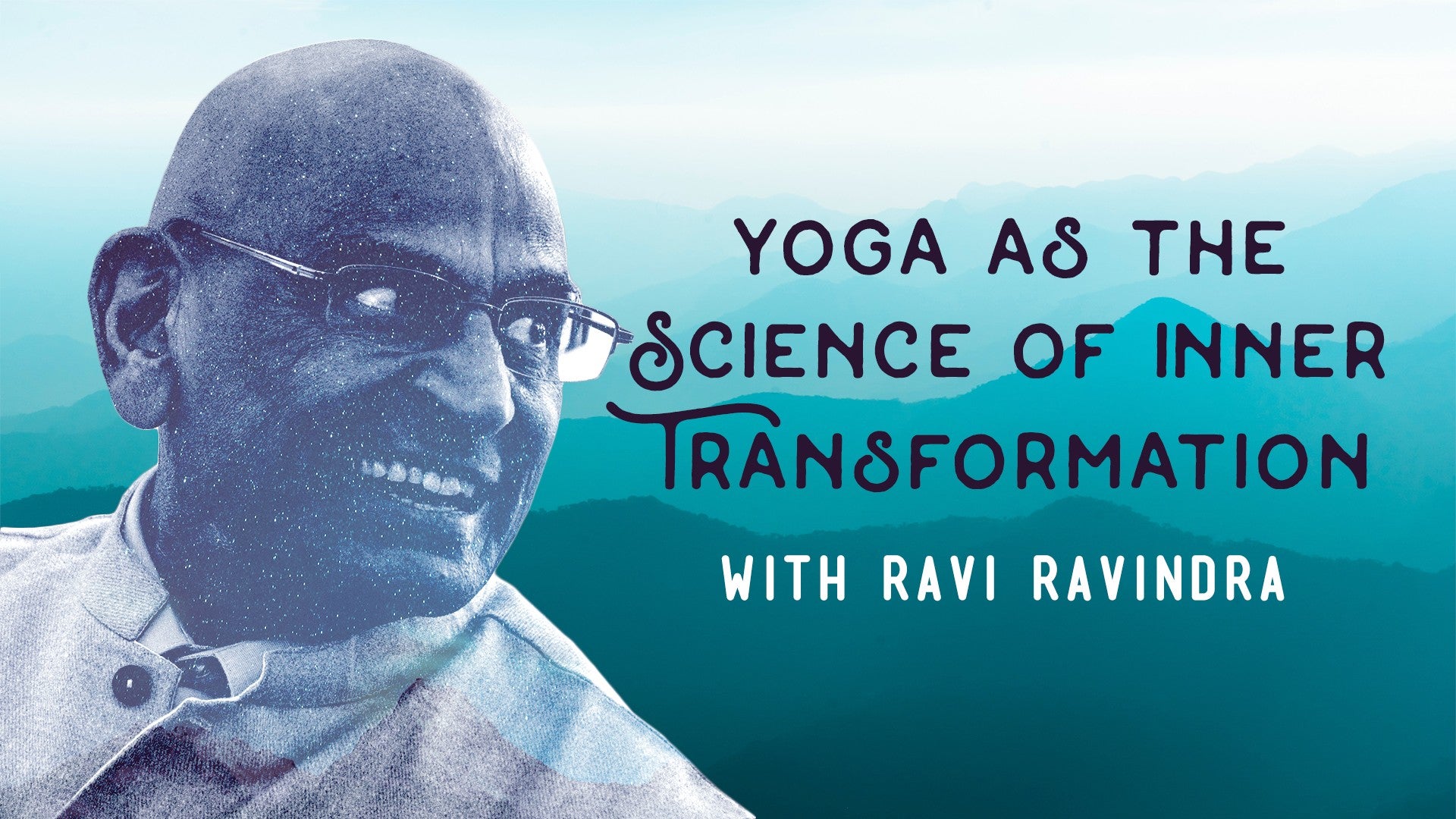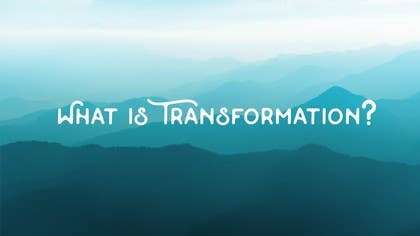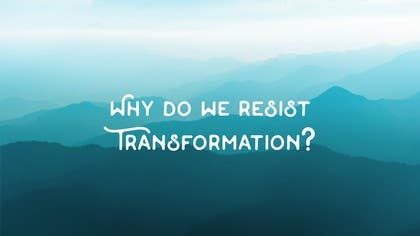Description
About This Video
Transcript
Read Full Transcript
Everybody, everything throughout our lifespan is always changing. So one sometimes thinks as if change itself is transformation, it can be so considered. However, generally speaking, it acquires a certain value to it. Transformation is as if the change in the right direction. And the right direction, particularly from any spiritual point of view, is how can the instrument that I am, my body, my mind, my feeling, how can it become the right instrument for receiving the vibrations or the energy or sometimes the messages coming from a higher level of consciousness. Ultimately, one would say coming from God, but this really in a way remains a word. Different languages end up using different words. So coming from Allah, coming from Brahma, from the Holy Spirit or the absolute varieties of phrases. Philosophers tend to be a little less personalizing it.
So they would say something like the great energy or Einstein uses the word cosmic intelligence. So, but the idea is how can my instrument become the right instrument for receiving that kind of vibration or messages. So that is really what the transformation is about. We are changing all the time. Just getting old, even. In fact, our biologists say to us, which I imagine is true, that after seven years practically every cell in our body has changed. But it's not just any kind of change. Although literally the word transformation could also mean that.
But that's not the usual association of it. Change in the desirable direction. You see, this is where one needs to realize that within ourselves we actually have many levels. Each one of us, we can look at even a single day in our own life. Not every moment we are exactly at the same level of either clarity of thought or clarity of feeling. Sometimes we are almost excessively taken over by a sort of anxiety or worry, small mindedness.
Or just simply me, me, me. But that is also a level of ourselves. Then sometimes we can discover maybe involuntarily that one is quite generous, quite willing to listen to the others. Not just trying to impose one's own perspective on everything. So if I can actually see in a very ordinary way that I myself am not always at the same level. By level I mean level of, we use varieties of phrases, level of consciousness or level of being or even level of my attention.
Whether my attention is available or free or I'm just too occupied. Supposing something terrible happened to me this morning. It's almost certain that for a fair amount of time that keeps coming back to my mind. And so part of the process of transformation will be, how can I be actually free? How soon can I be free of something damaging information or something somebody called me by bad names.
There are varieties of things that occupy us. So why should one be willing to be transformed? Simply because if I realize that there are many levels within me. Now speaking now a little bit from the perspective of what the great sages say, especially in India even perhaps much more emphasized that at the very core of myself, I am, you are, everybody is. Identically the same as the very highest level of consciousness.
In India it's called Brahma, simply meaning the vastness or the largeness. So, but that is not something I can say from my own experience. But the very purpose of the teachings of the great sages or what sometimes they are become scriptures, but not always, is to remind us that not everything is according to my understanding. After why do we call somebody a great sage or a great philosopher or a great scientist or a great artist? That they are able somehow to become aware of something that ordinarily most of us are not aware of it.
Now then in the very process of painting it or making a sculpture or expressing it in poetry or in philosophy, the very process of that they all say slightly it never quite captures what they see or what they experience. You probably know this interesting remark of St. Paul that the eyes of the flesh see the things of the flesh, eyes of the spirit the things of the spirit. But the implication is that each one of us potentially has the eyes of the spirit. But usually those are not so open. So we see only the material aspect or the fleshly aspect of anybody we encounter.
But sometimes I'm sure you have had this experience yourself. You meet somebody and you feel that you have been seen as if they see a different level of you, maybe your own potential. You're not manifesting it, you may be even stuck somewhere. I certainly have had this kind of experience with some very remarkable people like Krishnamurti would be one example, many people might know of his name. Or for my own teachers in the Gurjev teaching, Madam dissolves men, Mrs. Welch.
They saw something in me potentially existing and they wished to assist me to flourish, to even emerge out of me if you like. But that required some discipline. So transformation is to be, we should not imagine that I myself know the various levels, but this is one of the values of the sages of the scripture, or if you're fortunate enough to meet some people who you would yourself regard as wise, they can see something even in me that I don't see. This was one of the striking realizations of the Buddha, that everything is transient, meaning everything is changing. So in a way, in India in particular, sometimes it gets a little too dogmatically expressed, that whatever is changing is not true.
So this is for example, Patanjali in the Yoga Sutras even describes a vidya, ignorance as seeing the transient for the eternal. So there is very much this notion that something that is transient, is changing, is not really true. It's not the deepest level. The deepest level or the highest level if you like is something that is beyond time. So it's not that in a way sometimes people misunderstand it.
That doesn't mean that change in time is against something which is beyond time. Something which is beyond time is not against time. It can manifest in time at any time. But it doesn't have a history in time. I sometimes use this as an example.
Marriage has a history. Love does not have history. One can be in love for a moment and then not for a whole day or a month or a year. Again, love doesn't have actually a history. We socialize it by making a marriage contract.
That has a history. Similarly, when one says that somebody is in contact with eternal wisdom, that's not against wisdom in time. But they're not always in contact with that. It doesn't have a history. So therefore, what is transient or changing is certainly, as I said, particularly in the Indian tradition, is not regarded as really bearing the truth.
So one is searching for something which is at least longer lasting, let us say. Ultimately, eternally lasting. We are very changeable. So part of the requirement of real transformation is, can I actually discover, which I sometimes myself experience to be there, sometimes at a deeper level, the sages say is there in me, a level which I'm usually not connected with. From where I can more impartially look at the world, can be more receptive.
So then that also exists in me, but usually I'm not connected with that part of me. So that's the call for transformation.






You need to be a subscriber to post a comment.
Please Log In or Create an Account to start your free trial.